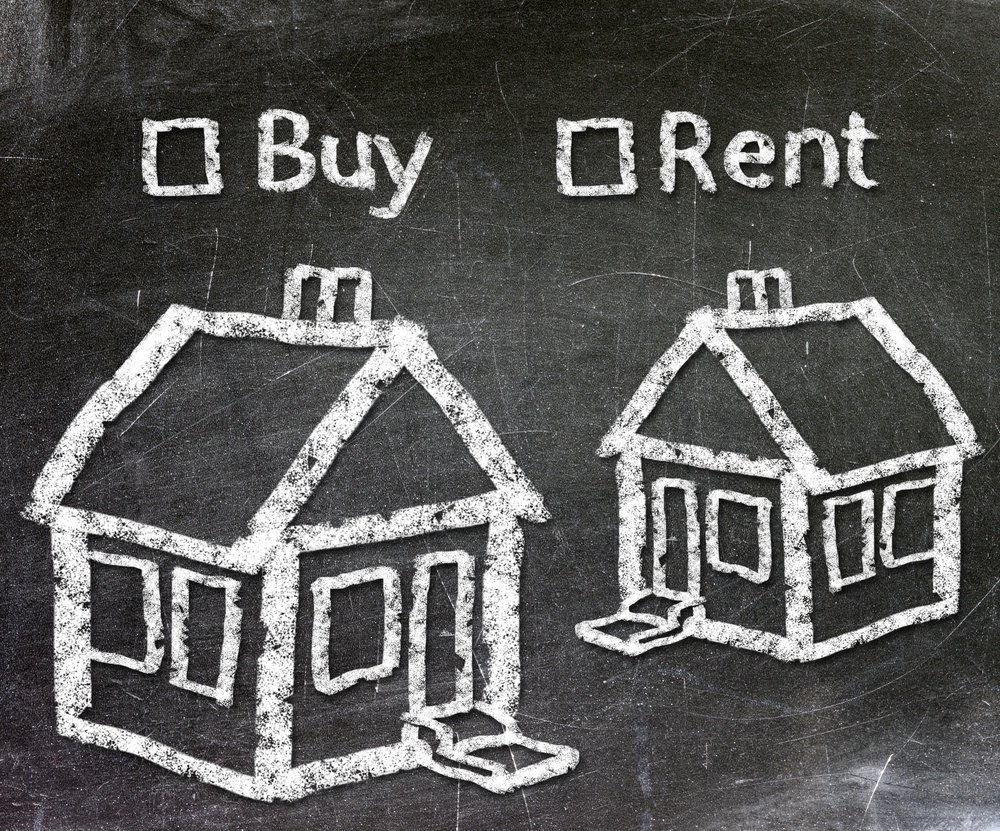
Is it true that buying is always better than renting? Is it really impossible for most people to qualify for a mortgage today? Don’t fall for these common myths about buying versus renting.
Myth: Renting Means Throwing Your Money Away
The old “throwing your money away” myth is frequently spouted by real estate agents interested in selling you a house.
The truth is that renting can be smart, in the short term. It gives you the freedom that home ownership doesn’t.
When you rent, you aren’t locked in to a specific neighborhood or job market. If you want to change jobs, go to school or move across the country, there’s nothing holding you back. The genius of renting is that it keeps your options open.
But if your long-term goal is to build wealth, then eventually you’ll want to buy a home. Since the year 2000, according to Zillow.com, average rents have risen almost twice as fast as household income. That means rent will probably take an ever-bigger bite out of your income in the future.
Myth: Buying Is Cheaper Than Renting
Not usually.
When you buy a home, it comes with additional expenses that renters never face. In addition to the principal and interest on your mortgage, you also have to pay property taxes, homeowner’s insurance, and possibly HOA fees.
Also, homes (especially older homes) have ongoing maintenance and renovation costs.
Buying a home has plenty of advantages over renting, but being cheaper isn’t one of them.
Myth: Buying a Home Is Too Difficult After the Recession
It’s true that subprime mortgages are harder to find these days, but even those aren’t impossible to get.
In 2015, Americans took out 7.71 million new first mortgages, according to Equifax, totaling $1.82 trillion.
Chances are, you can qualify for a conventional or FHA mortgage if you have a solid income and a reasonable credit score. 90% of first-mortgage borrowers last year had a score higher than 646.
You don’t even necessarily need a large down payment, either. FHA loans offer rates as low as 3.5%, and VA programs typically require no down payment. Some lenders even offer down payment loans to borrowers with strong credit.
No matter what kind of mortgage you take on, it’s important to set aside an emergency fund to cover the unexpected. A good rule of thumb is to build up a reserve of at least 3 to 6 months of expenses (including your mortgage payment).
Should You Rent or Buy?
The truth about buying versus renting is that the answer depends on your situation: the price of homes in your area, the amount you pay in rent, current mortgage rates, inflation, and dozens of other factors.
All things being equal, if you plan to move in the next few years, renting is probably the smarter option.
The longer you plan to stay in one place, the more sense it makes to buy, because the high initial costs of home ownership would be spread out over several years.
Buying a home is the financial decision of a lifetime. Remember: the choice is up to you.



